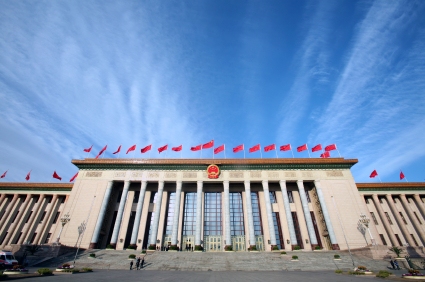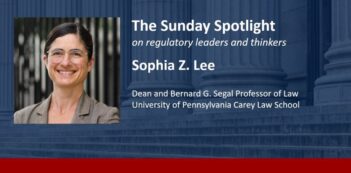
Officials increasingly consult with an engaged public when setting policy.
Scholars of regulatory policymaking have long wondered about the extent to which public comments on regulatory proposals actually engage with policy merits rather than merely represent superficial and symbolic expressions of democratic participation. This concern has been salient in advanced industrialized democracies with well-established traditions of public consultation and feedback. It is of still more obvious importance in contemporary China, where, as I have documented previously, government officials are increasingly consulting with the public when making policies in areas ranging from regulation of foreign direct investment to criminal procedure law.
If public consultation by Chinese officials does more than provide a veneer of popular legitimacy to decisions that have already been made behind closed doors, citizen engagement needs to show that the public is actually grappling with the political and substantive issues under consideration by officials. Such active public engagement, as opposed to commenting that uncritically ratifies proposed policies, marks processes that have the potential to impact government decision making, enhance the performance of laws and regulations, and, at a deeper level, cultivate support for the Chinese Communist Party.
In recently published research, Zhou Liao and I analyzed the content of public comments submitted in response to a proposed reform of the Chinese health care system by the central government. We accessed the proposed policy and texts of the public comments on it from a website created by the National Development and Reform Commission, a macroeconomic planning agency with jurisdiction over health care reform. Our research aimed to answer an important question related to citizen feedback in policymaking in an authoritarian political system: To what extent do public comments contain politically informative and substantively salient arguments and evidence about health care reform? In terms of political information, we looked for feedback expressing support for or opposition to the health system reform proposal. In terms of the substantive salience of comments, we looked for commentators’ engagement with specific aspects of the health system addressed in the reform proposal.
Although previous research has suggested that public comments in China are relatively devoid of political and substantive discussions critical of government laws and regulations, we found that comments on health care reform commonly addressed substantive issues in great depth as well as expressed negative assessments of government decisions. In fact, comments challenging the government’s proposal vastly outnumbered supportive comments. Some of these negative comments even expressed stridently hostile attitudes. For instance, one commentator said, “This plan basically cheats us. If the government cannot provide us with a plan that satisfies the majority of the people, we will be forced to use our power to make you bureaucrats pay.”
In addition, the majority of comments were grounded in knowledge derived from professional experiences and research-based sources. The following excerpt from a comment illustrates the kind of substantive knowledge that comments brought to bear on the health system reform process:
I work at a hospital in a rural area. The New Rural Cooperative Medical System was implemented in 2008, but it does not work to the benefit of peasants. Originally, 1,300 RMB was enough to cover the cost of an appendectomy. Now, however, the operation costs 3,000-4,000 RMB and patients must pay 1,300-1,500 RMB out of pocket.
Our findings about the political and substantive character of public comments are important in laying out a baseline of information about citizen feedback on proposed laws and regulations in China. Analyzing the emerging interactions between China’s state officials and members of its civil society not only enhances our overall understanding of current Chinese affairs, but also offers insight into the prospects for stability and change in the Chinese political system, a topic of concern to firms, non-profit organizations, and public officials from around the world. Overall, our research is consistent with the notion that government consultation, to the extent that it is characterized by such politically informative and substantively salient citizen feedback, holds promise as an instrument of governance reform.
The Chinese Communist Party has embraced public participation in recent years as a means of cultivating popular support in the face of significant economic, political, and social challenges. Going forward, additional analysis of government consultation and citizen feedback will help broaden understanding of the implications of governance reform for the prospects of the Chinese Communist Party as it seeks to maintain its monopoly on political power while expanding its interaction with an increasingly engaged citizenry.




